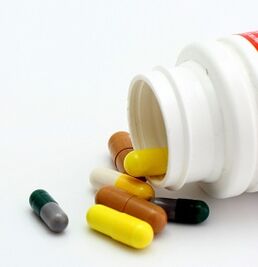
The urine system is usually exposed to infection.One of the common infectious diseases of the urinary tract is cystitis.What to do with cystitis in women?The treatment of pathology must start with the first symptom.Without treatment, the disease will gain a chronic form, which will be difficult to cope with.
Provocative factors and symptoms of the disease
Cystitis is a disease of an inflammatory infectious nature that develops in the bladder area.The disease is usually diagnosed in women, but no cases of male cystitis are ruled out.
The reason for the development of cystitis is the conventional pathogenic bacteria in the urinary tract pathway:
- Streptococcus;
- E. coli rod;
- staphylococcus;
- There are others.
Infection may be the result of genital or inflammatory processes that do not comply with hygiene norms.Pathology is also sexually transmitted (urea magnification or mycoplasma).
Suffering from cystitis, patients with symptoms:
- Pain during urination;
- A sudden attack in the lower abdomen;
- The feeling of incomplete urinary destruction;
- Urinary incontinence;
- The urine is muddy;
- Release urine with blood;
- Temporary fever to 38 degrees.
In women, cystitis is treated outpatiently by taking medication.When the treatment is performed in the initial stage, the disease can be eliminated without any complications.
Choice of treatment strategies

The effectiveness of treatment measures depends on the time at which time the diagnosis is performed.Identifying pathological causes (identifying infection types) also plays an important role.As chronic or acute forms of cystitis develop, the drug may not work and the infection will further develop, causing diseases of the kidneys and reproductive organs.
The primary task of experts involved in patient treatment is to prevent the inflammatory process by destroying pathological microorganisms that damage the urinary mucosa.
Taking into account the characteristics of women's disease, the choice of cystitis medication is only involved in the doctor:
- type of infection;
- degree of disease development;
- Individual characteristics of the body (age, gender, weight);
- The existence of contraindications;
- Trends of adverse reactions.
One key point is to determine the response of pathological microorganisms to drug composition.To this end, a special study was conducted to help establish the most suitable medicine.
Ability to treat cystitis
Drug therapy includes different groups of drugs.A woman prescribes a prescription pill from cystitis, which is not only intended to disrupt the infection, but also prevents inflammation and reduces the intensity of the symptoms.
With complex therapies, it is recommended to take medication to the group:
- antibiotic;
- Herbal preparations;
- Reflux;
- Anti-inflammatory (medicine;
- Probiotics.
In order to treat cystitis in women more effectively, in addition to taking medication, special diets and hygiene measures must be followed.
antibiotic
The main drug that helps prevent the progression of cystitis infection in women is antibacterial drugs.
Antibiotics have a strong effect on the weight of the body, so they only need to be taken as prescribed by your doctor.
Plant medicine
Plants reflect less effects than antibiotics, however, they have less toxic effects and are therefore allowed to be used during pregnancy (addressed by experts).
In women, cystitis based on natural ingredients is used in combination with antibiotics.Therefore, treatment and recovery are faster.
Reflux
For cystitis, patients are often worried about spasms in the urinary tract, especially during urination.To eliminate pain and cramps, it is recommended for women to use cystitis medications with drotaverin content.
It is recommended to take drugs containing aphrodisiac protein for symptom treatment.Short-term acceptance may be accepted (2-3 days).
Anti-inflammatory drugs
In addition to antibiotics, patients with cystitis can also be prescribed to prevent the development of complications, especially with an increased risk of kidney inflammation, especially with an increased risk of kidney inflammation.
Drugs in the anti-inflammatory group are usually given at one time for an increase in symptom intensity (pain or temperature).
Probiotics
In most cases, the use of antibiotics can lead to a violation of gastric function due to the effects of the drug on the gastrointestinal wall.To promote the operation of the digestive tract during the treatment period, the combined intake of probiotics is stipulated.
Taking probiotics reduces the risk of adverse drug reactions in the gastrointestinal tract.
Contraindications and side effects
Considering possible contraindications, any medication for treating cystitis in women should be selected.During treatment, patients may also show symptoms of adverse reactions, due to contraindications, exceeding the recommended dose or the body's personal response to the medication.
Contraindications:
- Personal sensitivity to component components;
- Many chronic diseases;
- Impaired kidney or liver function;
- Central nervous system problems.
It is not recommended to take most medications during pregnancy or breastfeeding and after 18 or 60 years of age.
Side reaction:
- Disorders in the gastrointestinal tract (diarrhea/constipation, nausea, abdominal pain);
- blood pressure, tachycardia and other diseases jumps in the cardiovascular system;
- Dizzy or dizzy headache;
- Depressed state or mood swings;
- Skin allergic reactions;
- Changes in urine color (yellow).
Taking drugs in the presence of contraindications can promote or exacerbate the disease.If there are adverse reactions, the symptoms of the patient can be treated by prescription.
Appropriate nutrition during treatment

To accelerate the treatment of cystitis and prevent complications of medication use, it is necessary to observe a diet that restores mucosal flora and urine function.
Recommended to use:
- A lot of fruits and vegetables;
- Fruit drinks, green tea or free gift (without sugar);
- Close Cereal Cereals.
The diet should include carrots, cabbage, pumpkin, asparagus, bran and cedar nuts.
For cystitis, the consumption of any salt that has a irritating effect on the bladder wall should be ruled out.
It also does not want to use:
- Seasoning;
- Canned food;
- Smoked meat;
- Acid;
- Sharp dish.
The attending physician recommends using the right diet or may introduce the nutritionist to the nutritionist.
Cystitis medication should not be started if initial consultation is not conducted with the physician who establishes an individual treatment plan for each woman.
























